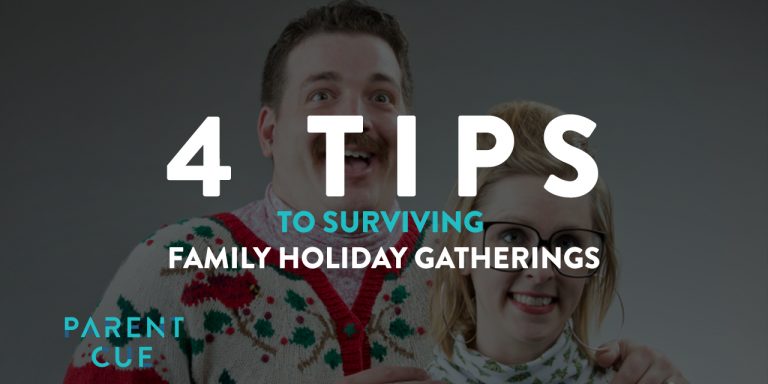
This time of year really is my favorite. Starting with football and Thanksgiving dinner, then watching kids as the magic of Christmas begins to invade every bit of space in their world, it’s easy to fall in the love with the wonder of the holiday season.
But as adults, we know there is much more to the holiday season than the wonder and the magic we see our children so easily clinging to and emanating. While visions of sugarplums dance in their heads, we have a different sort of vision . . .
Of extended family descending on the house in “Christmas Vacation” style.
Of uncomfortably vocal relatives sharing too much information about their aches and pains, your distant second cousin once removed, and worst of all, politics.
Of raised voices and passive aggressive digs.
Of cooking disasters you’ll never live down, tension headaches no amount of painkillers will help and at least one or two permanent stains, broken dishes, or clogged toilets to deal with in the process.
The holidays, as an adult, don’t always stay as magical as they felt as a kid.
Because reality isn’t always magical. Because family isn’t always magical. Because while we’d like the holiday picture the Publix commercial sells us, the truth is, what we’re dealing with in our families feels more like a Saturday Night Live sketch than a Hallmark movie.
So what do we do? When the days ahead are filled with forced interactions we’d rather avoid, emotionally charged conversations we’d rather not have, and shared space with people we can’t believe we share a gene pool with?
Here are some tips:
1. Look for the lowest common denominator.
It’s embarrassingly obvious the things we don’t share in common with the people we are gathering around this season. But what if you started searching out the things you had in common, instead of highlighting your differences? You don’t have to avoid them, and you don’t have to make meaningless conversation about the weather. Be diligent in finding a point of commonality, hone in on it. You may be surprised by all you have in common with your great aunt Opal.
2. Be curious.
We have a tendency to walk into family gatherings assuming how we think it will go and already presupposing who will make us mad and what they’ll say to do it. But what if you approached these interactions with a blank slate mentality? Of giving others a benefit of the doubt? What if you led with questions and not assumptions? With curiosity and not retaliation? What if you walked in without having the battle lines drawn already and desired to make peace instead of keep distance? What might that look like?
3. Imagine the big picture.
Your kids are watching. We already know this. We know because they call us out when we lose our temper, or when we forget to say please or thank you, or when they talk back to us using phrases they overheard us using at one time… The point is they’re paying attention. They are watching how we choose to engage our families, the tones we carry, the mutterings under our breath, the exasperated sighs and frustrations we vocalize.
This may be dramatic, but one day your kids will be grown and will have the choice about whether to come home to you. They will have the option to choose how they spend their own holidays, and they will get to decide how they will engage the family they came from and are tied to, but may drive them just the tiniest bit crazy, or feel the slightest bit stifling, or make them want to lose their minds completely.
And when that happens, and they look back to their own childhood, what will they remember about how you faced this time of year with the more difficult people in your family? Will they have seen you approach them with kindness and grace and generosity? Because I think what they remember us doing has the potential to impact how they will choose to engage us themselves in the coming decades of their life. This season is more than just a collection of traditions, it’s also about starting a legacy of relating to the people we don’t always understand but are committed to loving anyway.
Christmas is about starting a legacy of relating to the people we don’t always understand but…
Click To Tweet
4. Keep a sense of humor.
Years ago my husband and I were in a tough spot when it came to one particular relationship—and we didn’t know how to fix the situation and keep our sanity in the process. When talking to a friend about it, he said this: “It helps when I think of the person I’m having a hard time with as a TV character.” We laughed, and he did to, but then he said, “Seriously.” When all else fails, don’t forget to laugh. Sometimes it’s your best option. Sometimes it’s your only option. Sometimes when you think of your life as being fodder for a sitcom, and the people you have to engage but would rather not, as exaggerated versions of real life people, you can deal with a lot more. In fact, they may actually become a bit more endearing in the process.
There is no magic formula for the holidays. For making it through with the people we have to engage with, when there are about a million other things we’d rather be doing. But I don’t think we have to be as miserable as we feel. I think there’s a possibility to claim some of the magic back, and in the process, maybe even start liking the people we never thought we could. It’s possible. Maybe not likely. But you never know. It could be a Christmas miracle.
Source: The Parent Cue






